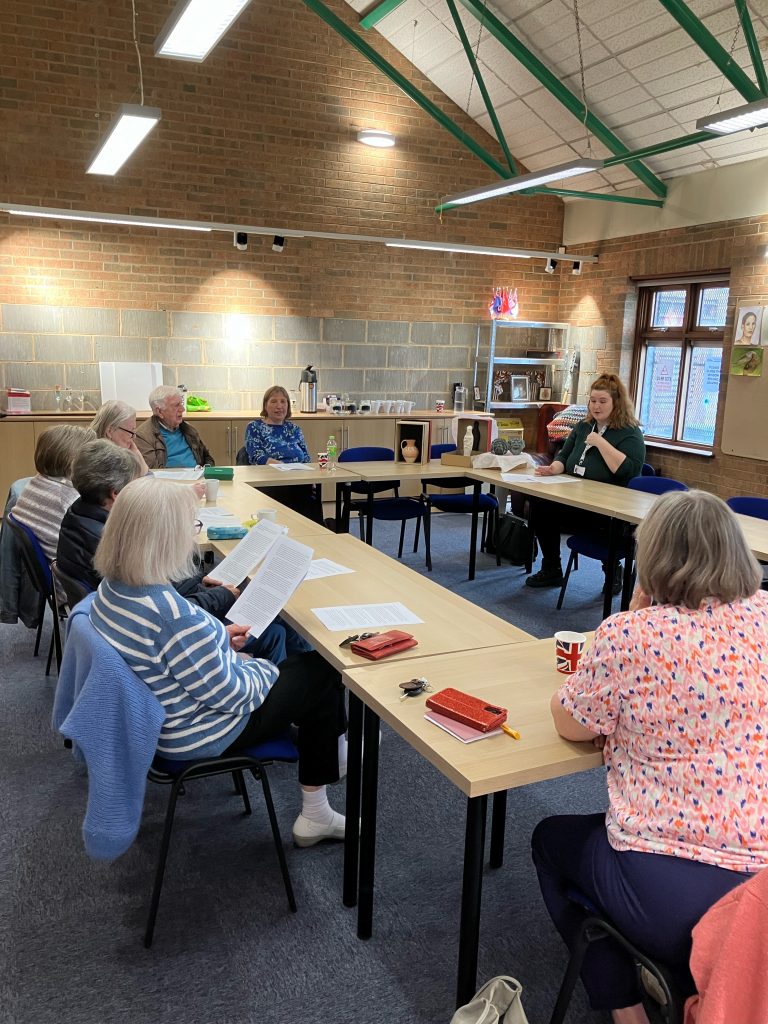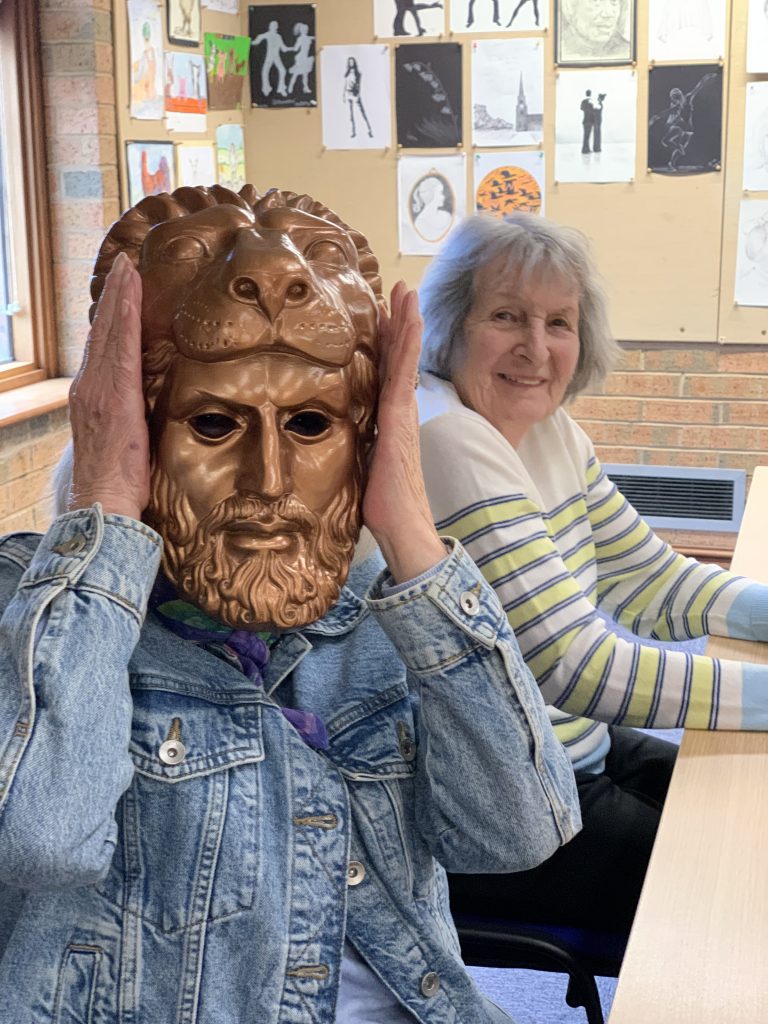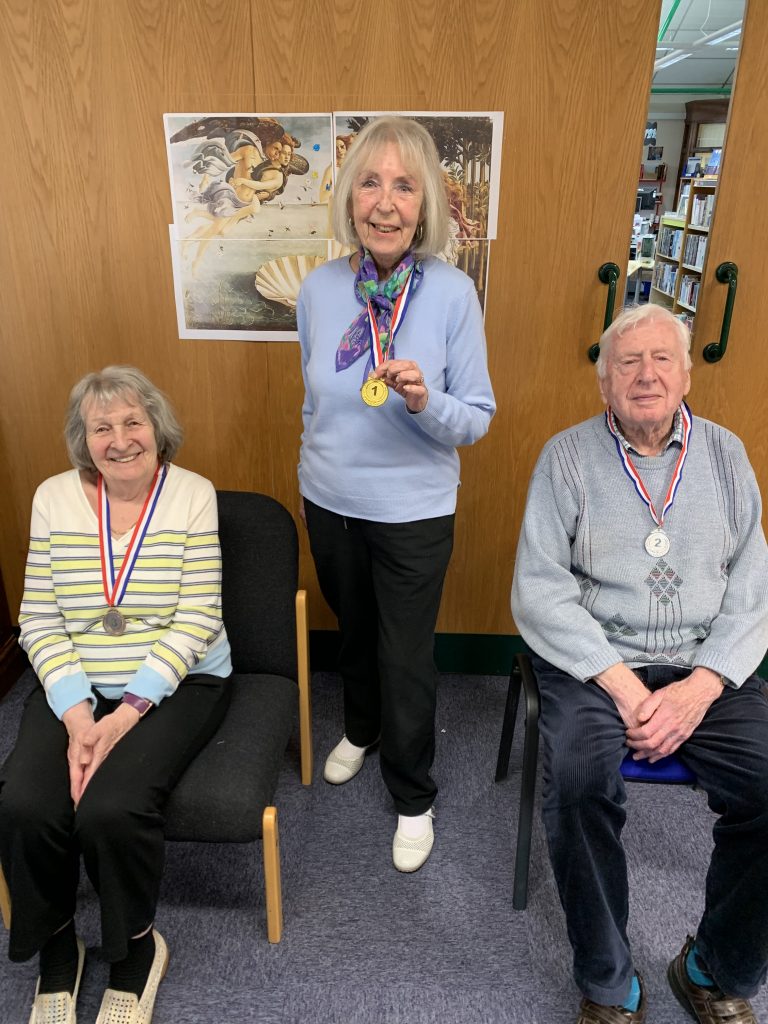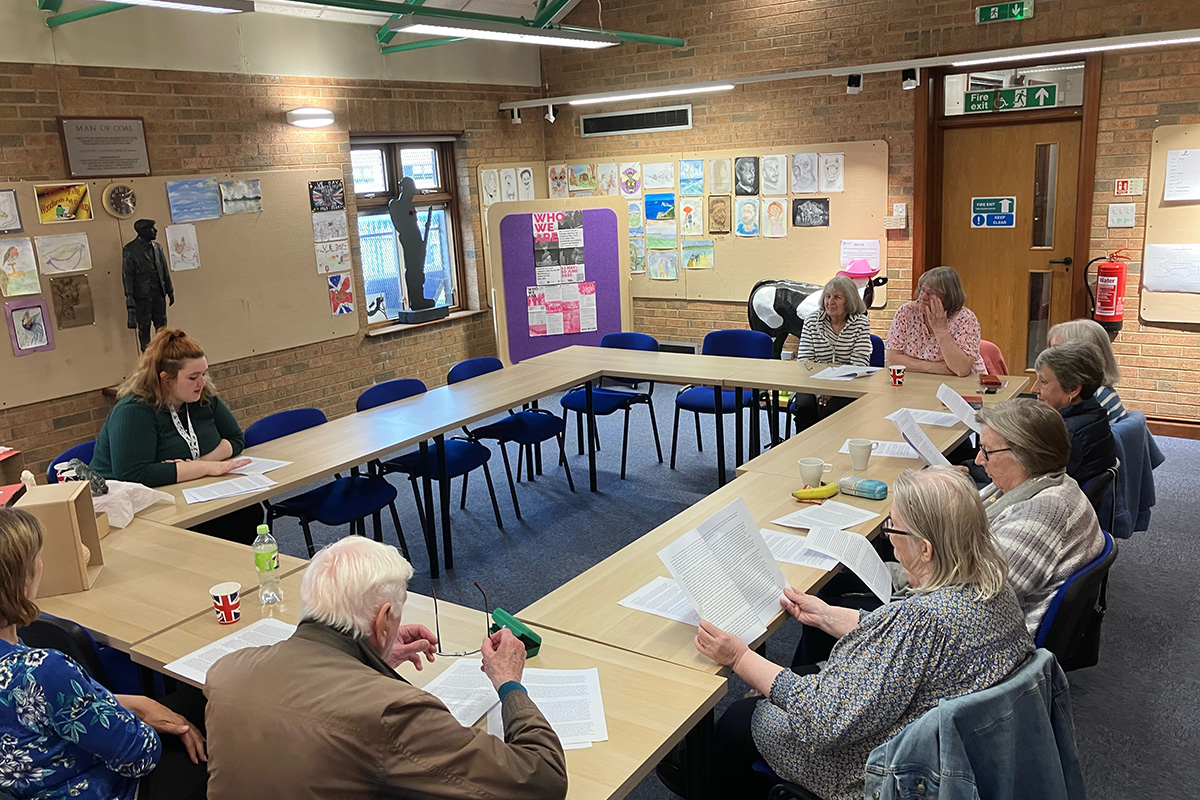Written by Emma Kelsey, Culture Service Officer: Community
History Book Club, (HBC) is a free social group for adults that meet twice a month at Woodlands Community Library. Each session is led by a member of the Heritage Doncaster community team, as part of the History, Health and Happiness programme—an initiative designed to connect residents with culture, enhance wellbeing, and reduce social isolation using the 5 ways to wellbeing.
Now in its fifth year, HBC began as an online club during the pandemic, offering people a way to stay connected with history and each other from the safety of their homes. Today, the group continues in person, bringing together individuals with a shared interest for the past in a friendly, relaxed setting. Each session focuses on a different historical topic, using literature and poetry, museum collections and activities to explore and create conversation. One participant said:
“History Book Club is another place to go, sounds mundane but it gets me out of the house, and it is an interest of mine – history, especially local history. It’s a place to meet other people, I like to think I’ve made friends here”.
An example of a History Book Club session focused on Ancient Greece. Participants were given time to read ‘The Song of Achilles’ by Madeline Miller prior to session, then in person they explored replica Greek artefacts and statues at the library. Wrapping things up with their very own HBC version of the Olympics—complete with a tower building and paper airplane contest, and a ‘pin the arms on Venus’ challenge. Here, participants were able to experience the 5 ways to wellbeing through learning (reading a book), mindfulness and sharing ideas (exploring artefacts), connecting (with group members), and even engaging in physical activity through the HBC Olympics.
HBC is open to anyone over 18, however has a long-standing cohort of older adult participants aged 60 to 93. Facilitators work with them to design sessions that suit both interests and abilities. Initially, craft activities were included, but some participants found them less enjoyable due to the level of hand dexterity involved, with one noting the activity caused ‘stress’ and therefore reducing its benefit. Facilitators observed a stronger preference for conversation, using objects and historical content to prompt discussion. One participant said “at other groups we don’t do as much talking, but at history group in a way I like it better because we get talking and there’s lots of discussions, I wish it was on every week.”
Today, HBC has moved from being a traditional book club to a shared reading group. Participants now read aloud together during sessions, which allows for some connection and memory sharing, and removes the need for homework—now everything is created in session, together.



Credit: Heritage Doncaster
Each session has two parts: it starts with a small number of museum objects that introduce the topic or theme. Instead of bringing many items, only a few are selected to make the selection more meaningful and focused. After this, participants are led by the ‘reader leader’ through a piece of prose or poetry. These are deeply connecting sessions where people can listen to others, take time to develop thoughts and have opportunity to express them. One participant who attends regularly said “it’s something I’ve not done before; people will say things about what we are reading that I haven’t even thought about…… its interesting and usually sparks a conversation”.
History Book Club is always open to new members, please visit the Heritage Doncaster website www.heritagedoncaster.org.uk/projects/happyhistory/history-book-club/ or email yourmemeories@doncaster.gov.uk for more information.
